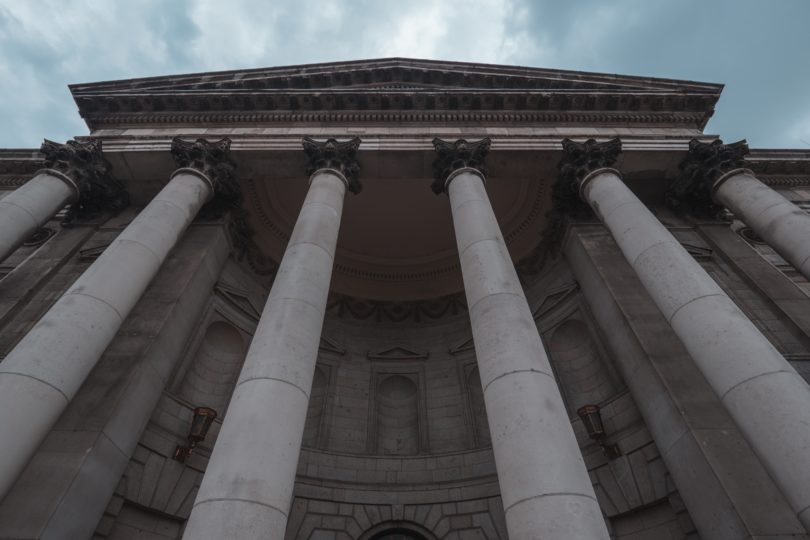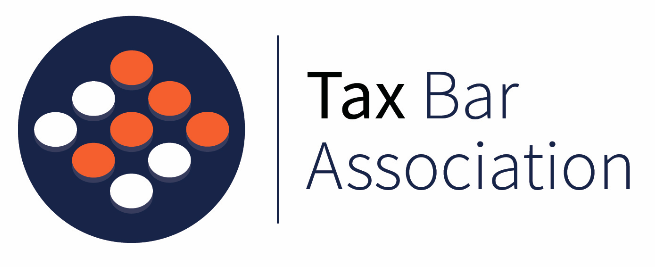
In advance of the Tax Bar Association Conference on 29th September, we are sharing two case updates prepared by members of the Tax Bar Association. In the first of these updates, David K McGrath BL summarises the Judicial Review judgment by Ms. Justice Siobhan Phelan, in Michael Quiqley v Revenue Commissioners and the Tax Appeals Commission.
Case Summary – Michael Quigley v Revenue Commissioners and The Tax Appeals Commission [2023] IEHC 244 – Judicial Review
Judgment of Ms Justice Siobhan Phelan, delivered on 10th May 2023
The Applicant sought relief by way of Judicial Review as against the Revenue for refusing to disclose information relating to persons interviewed for the purpose of a Revenue assessment against the Applicant. Relief was also sought as against the Tax Appeals Commission on the basis that an application seeking such disclosure was refused by the Commissioner.

The Facts
The Applicant appealed a Revenue assessment of VAT and Excise liabilities to the Tax Appeals Commission (TAC). These assessments were in the sum of €636,842.00 and €1,012,337.85 respectively for a period between 2009-2016 and arose on foot of the Applicants sale of Marked Gas Oil (MGO), commonly known as Green Diesel for which he was a licensed fuel trader.
In carrying out the assessments, the Revenue investigated a list of 700 customers of the applicant only 400 of which could be identified. A proportion of these customers (44) were interviewed for the purposes of the investigation. Some of these customers (33) allegedly denied buying MGO from the applicant.
In the course of the appeal to the TAC the applicant requested the names of the 44 identified customers who were interviewed by the Revenue. Revenue refused to provide him with the names.
The Appeals commissioner conducted a case management hearing on 17th September 2021 wherein the applicant sought inter alia:
- the details of the customers and the transactions which comprised the sales at the core of the assessments;
In a decision delivered on 1st December 2021 the Commissioner refused the request to furnish the names, details and particulars of the 44 customers interviewed by the Revenue together with the documentation in relation to the interviews. The Commissioner further directed the Applicant to furnish Revenue with the names of the 300 customers it could not identify within 28 days.
On the 3rd of December 2021 the Applicant submitted an application to amend and withdraw the Commissioner’s direction. In a decision on the 25th of January 2022, the Commissioner largely reaffirmed her directions.
As such, the Applicant instituted Judicial Review proceedings in March 2022 seeking the following reliefs:
- An Order of certiorari by way of judicial review quashing the decisions of first respondent (Revenue) on the 13th of September 2021;
- An Order of certiorari by way of judicial review quashing the decisions of the second respondent (TAC) on the 1st of December 2021 and the 25th of January 2022;
- Declarations that the first respondent (Revenue) breached the principles of fair procedures and natural and constitutional justice in failing and refusing to provide the Applicant with the information sought in its letters of the 12th of April 2021 and the 20th of July 2022;
- Declarations that the second respondent (TAC) breached the principles of fair procedures and natural and constitutional justice in failing and refusing to direct the first respondent to provide the information sought in the letters of the 12th of April 2021 and the 20th of July 2021 to the Applicant;
- Declarations that the second respondents breached the Applicant’s Article 6 rights of the European Convention of Human Rights In failing to direct the first respondent to provide the information sought in the letters dated 12th of April 2021 and the 20th of July 2021
- Declarations that the first respondent and second respondent erred in law in making their respective decisions.
The Issues
The parameters of the legal grounds identified in the Statement of Grounds and the applicability of EU Procedural Rights to the proceedings.
The Court was satisfied that the protection of the Applicant’s rights to fair procedures before the TAC may properly be informed by the jurisprudence of the CJEU and the requirements of EU Law.
In relation to the issues arising in this case, the case law establishes that there is a right of access to documents which is not absolute just as there is no such right in domestic law. Insofar as that right is conceived as part of a defence, it arises where there is an imputation against the tax-payer of a nature that gives rise to an entitlement to such access in order to respond to and defend against same.
However, in the absence of any argument before the TAC in reliance on the jurisprudence of the CJEU, the Court was not satisfied that the applicant could advance such arguments for the first time in the Judicial Review proceedings.
The Applicant continued to have that opportunity where the appeals remain pending before the TAC, even during the hearing as demonstrated by Determination 31TACD2023.
Whether the information sought by the Applicant in relation to the interviews, and specifically with customers who deny buying MGO from the Applicant is required to vindicate his right to fair procedures in the appeal process before the Tax Appeals Commissioner?
The Court stated it is well established that the taxpayer undertakes the burden of appeal and must establish an entitlement to the Tax relief sought.
In doing so, the applicant is entitled to fair procedures during the Revenue process but issues of law and fact arising in that process are matters for the Tax Appeals Commission in the first instance. There are no defined set of principles as to what is required to ensure observance of those requirements for fair procedures and constitutional justice. The requirements will vary from case to case and will be determined by the legal and factual matrix.
if for example records ostensibly establish an entitlement to relief but the Revenue challenge the bona fides of the records by means other than material already in the tax-payers possession or available to him or her in a manner which imputes dishonesty, then such a challenge signals a red-flag for the decision maker to be alert to ensure fair procedures in the process which may lead to any adverse determination”
The Appeal Commissioners are the most appropriate body before which to pursue the fairness issue, if it remains live, given they have expert knowledge in dealing with Taxation appeals. Further it is clear from the case law that the structure of the self-assessment system along with the aforementioned onus of proof requires a particular approach in tax proceedings.
As such, a range of rulings may be required at the hearing of the Tax Appeal in this case, depending on the circumstances that arise for consideration during the Tax Appeal. It is therefore open to the Applicant to make such submissions as may be necessary at the hearing of the Tax Appeal including submissions in reliance on the line of authority from the CJEU.
Conclusion
The documentation requested relating the identity of the 44 individuals was not necessary for the applicant to prepare and make his case.
A direction that the applicant provide information about the 300 unidentified customers was not tainted by unlawfulness nor did it amount to any pre-determination of the issue in the tax appeal. That direction does no more than afford the applicant the opportunity to demonstrate that he is able to identify those customers from his records (something he is required to do for the Tax Appeal in any event).
The question of the provision of further information by either Respondent remains live before the TAC and will be required to be determined by the Commissioner depending on how the Appeal is conducted.
The Court refused the relief sought and dismissed the proceedings.
The views expressed above are the author’s own and do not reflect the views of The Bar of Ireland.
Discover the Tax Bar Association

The Tax Bar Association (TBA) was established in May 2022 as the first formal representative body for Junior and Senior Counsel who practise or possess expertise in the taxation field. The TBA highlights to the wider community the role played by counsel in taxation and legal matters.
The Tax Bar Association’s Annual Conference is open to all and takes place on 29th September 2023. Register your interest below.